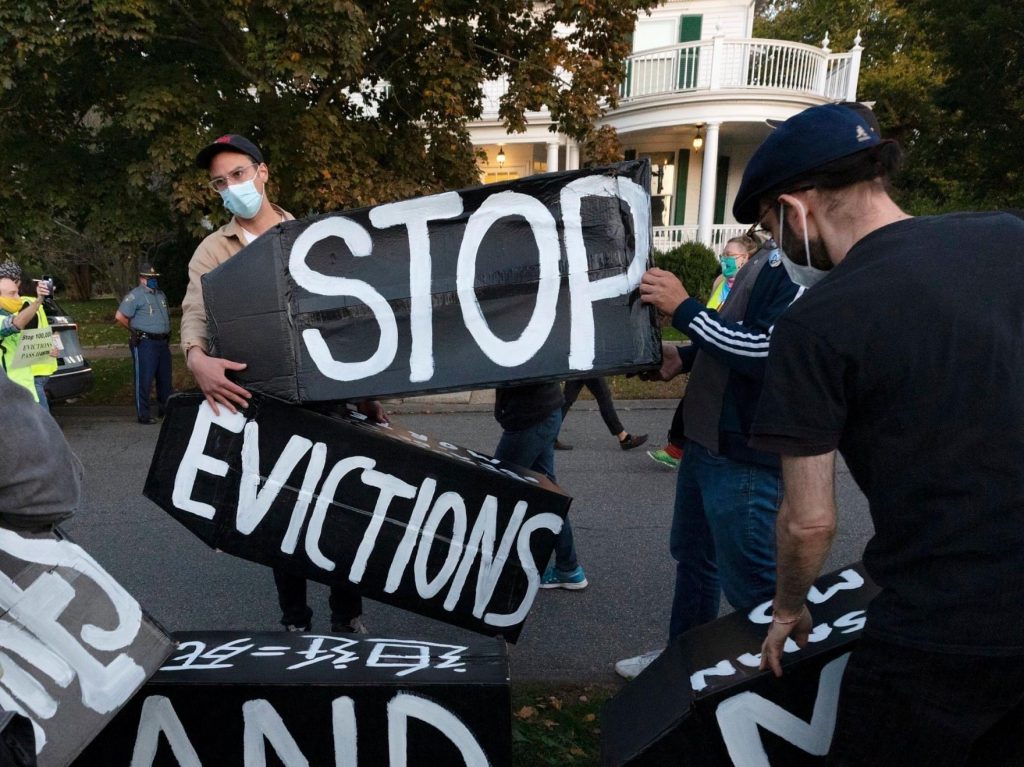Revised Moratorium on Evictions Causes New Challenges
Renters may be evicted and landlords are still losing money. Both issues have caused unpredictability in terms of the economy and housing market.

Tiarra Drisker ‘25
After the announcement of the newly revised moratorium on evictions, roughly 3.6 million people said they faced eviction in the next two months as of July 5, 2021, according to the U.S. Census Bureau’s Household Pulse Survey. Though the eviction moratorium prevents courts from processing certain eviction cases, it doesn’t cancel rent or any late fees, penalties, or interest charges. Now, more than 15 million people owe as much as $20 billion to their landlords as stated by the Aspen Institute.
Eighteen months after the initial ban on evictions, renters who are unable to pay may be forced out of their homes. The first moratorium, which began on March 27, applied to renters nationwide. The Biden Administration has issued a revised version of the moratorium on evictions that only applies to counties with a high rate of Covid. Eighty percent of the nation’s counties are within that category according to government lawyers, but that still leaves some renters facing an uncertain future and some landlords continuing to lose money.
“Government actions at the federal, state, and local levels basically shut down large parts of the economy such as restaurants and stores and private responses to the pandemic reduced demand in other large parts of the economy such as hotels and air travel,” Dennis Jansen, a professor in the Department of Economics, said. “These actions by the government and by private individuals led to the sharpest recession on record, and the highest unemployment rates since the Great Depression.”
After many businesses were closed at the beginning of the pandemic, many Americans were forced into unpredictable futures. People who once held reliable jobs suddenly had to worry about where their family was going to live and how to pay for housing. The U.S. government created the Cares Act as a solution. The act included an eviction moratorium on federally subsidized housing and was intended to conclude by the end of the summer of 2020, but Covid has lasted much longer than the government previously believed it would. After the 2020 presidential election, both presidential administrations signed legislation to extend the eviction moratoriums. Tenants are only half of the story, though.
“When a tenant doesn’t pay rent, the landlord’s net income quickly turns into a net loss,” Jansen explained. “Without rent, the landlord not only loses their net income but actually has to dig into their own pocket to pay for mortgage payments, insurance, property taxes, and property maintenance.”
This increase in net loss for landlords may have a negative impact on the rental market and housing market as a whole. Landlords no longer have a reason to rent out their properties and renters no longer have to fear evictions if they do not pay.
“Evictions, or more correctly the threat of eviction, is what makes the rental market function,” Jansen shared. “No landlord would choose to rent to a tenant that refuses to pay, and the threat of eviction provides a strong incentive for tenants to keep current with their rent.”
While the moratorium on evictions may be disrupting the housing market, the economy is recovering steadily.
“In terms of gross domestic product (GDP) — one measure of how the economy is doing — the recovery from the pandemic has occurred,” Jansen said. “Despite the fact that we have new cases and a rising hospitalization rate, the GDP numbers have returned to what they were before the pandemic started.”
The future is unknown in these unusual times, but if the moratorium on evictions were to persist or become permanent, renters and landlords will have to adapt and create new, innovative solutions.
“Landlords may come up with other contractual devices that are basically like paying rent but can be called something else,” Jansen said. “Maybe landlords can create something that allows people to have short term contracts to live in a place but they won’t be called tenants or they won’t be called renters.”
